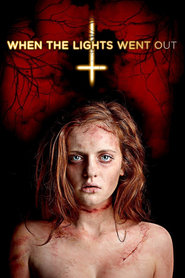“When the Lights Went Out 2012” is a haunting horror film set in 1970s England. In this spine-chilling tale, a family’s idyllic suburban home becomes a living nightmare as they are tormented by a malevolent supernatural entity. With flickering lights and eerie shadows, the film creates an atmosphere of palpable fear. The family must band together to confront their darkest fears and uncover the truth behind the terrifying haunting that threatens to consume them. Brace yourself for relentless scares and terror as the lights go out and the evil takes hold.

CLICK HERE⭳⭳⭳📺_Watch When the Lights Went Out 2012 English Subtitles_
Review
Pondering upon the calamities of modernity, one can’t help but feel an eerie sense of discomfort and apprehension. The flickering lights that illuminate our world may appear benign, but they conceal a darkness that is all too real. And it is in this darkness that we find the essence of the movie “When the Lights Went Out,” a cinematic masterpiece that delves deep into the heart of fear and despair.
The storyline of this film, set in the year 1974, captures the attention from its very first moments. We are introduced to a family living in suburban England, experiencing paranormal activities that escalate with devastating consequences. Based on actual events, “When the Lights Went Out” unearths a haunting tale shrouded in mystery and terror.
News of this chilling tale spread like wildfire across the nation, captivating audiences hungry for a riveting plot. The film’s extraordinary success at capturing these events with such authenticity can be attributed to its impressive ensemble cast. With seasoned actors such as Kate Ashfield and Steven Waddington at its helm, each character breathes life into their roles, skillfully bringing forth a tale steeped in reality.
The sheer mastery displayed by these artists is evident from their impeccable portrayal of characters who find themselves entangled within this supernatural ordeal. Ashfield’s performance as Jean Pritchard, a mother struggling to protect her family from unseen forces, tugs at our heartstrings relentlessly. Equally compelling is Waddington’s depiction of Len Pritchard, a father determined to defend his loved ones from an intangible enemy.
History intertwines with the paranormal as “When the Lights Went Out” navigates through Yorkshire’s mysterious storylines. It skillfully captures the essence of an era characterized by skepticism while challenging societal norms concerning belief systems and scientific reasoning. The movie’s ability to immerse viewers into 1970s Britain truly transports one back in time, experiencing firsthand the fear that gripped the country during that haunting period.
The score of this film, composed by none other than Edmund Butt, perfectly complements the eerie atmosphere. The haunting melodies dance with suspenseful rhythms, enhancing the tension and unease lurking in every corner. Its popularity soared among audiences and critics alike, with many praising Butt’s ability to tap into our deepest subconscious fears.
Filming “When the Lights Went Out” proved no easy task as director Pat Holden sought to recreate an era fraught with darkness and trepidation. With meticulous attention to detail, he skillfully crafted a visual masterpiece that leaves audiences spellbound. The cinematography in this film deserves acclaim for capturing the essence of both beauty and terror within each frame.
Evaluation by critics was overwhelmingly positive, cementing “When the Lights Went Out” as one of cinema’s most enthralling ghost stories to date. It is worthy of note that this immersive experience garnered several awards and nominations, paying homage to its exceptional cast, crew, and the visionary direction bestowed upon it.
As we delve further into this film’s depths, it becomes evident that its success lies not only in its performances but also in its ability to create a world so real that it haunts our dreams long after we leave the theater. The seamless integration of special effects seamlessly melds with practical techniques, creating an otherworldly experience that lingers on one’s skin like an icy breath.
The development of dialogue within “When the Lights Went Out” is reminiscent of Orwell’s own prowess; it constructively explores themes of familial bonds strained under duress while unveiling layers of complex characters. Conversations between Jean Pritchard and her daughter Sally force viewers to confront their own beliefs about the supernatural while raising existential questions about life beyond our mortal realm.
Behind every great film stands a crew dedicated to excellence. From production designers meticulously crafting period sets to editors weaving together footage into a cohesive tale, “When the Lights Went Out” benefits from the contributions of these unsung heroes. Their dedication and talent shine through every frame, seamlessly constructing a world plagued by darkness.
Criticism, however, is inevitable when dealing with a topic as divisive as the supernatural. Some argue that the film leans too heavily on tropes familiar to the genre. Yet, these critics fail to appreciate how Holden breathes new life into these familiar elements, weaving them into a narrative that feels refreshingly authentic.
Production of “When the Lights Went Out” was no small feat; it demanded immense patience and genuine belief from all involved. The daunting task of editing, ensuring seamless transitions while maintaining an atmosphere of unease throughout, underscores the meticulous craftsmanship poured into this film.
In analyzing its scenes one cannot overlook their profound impact on our psyche. One particularly memorable scene takes place in Sally’s bedroom as dark forces close in on her fragile form. The tension builds relentlessly until it culminates in an explosion of terror that leaves hearts pounding and audiences gasping for breath.
Gossip surrounding this film has been rife since its release, with rumors about real-life hauntings on set whispered in hushed tones. It is a testament to the power of cinema when even those involved cannot fully escape from its macabre allure.
Soundtracks have long held the power to create an atmosphere unlike any other art form. In “When the Lights Went Out,” this power is wielded with exceptional skill as each haunting melody weaves itself into every fiber of our being. Composer Edmund Butt masterfully captures both dread and beauty within his compositions, leaving us breathless at their impact.
A thorough analysis reveals that special effects are employed judiciously throughout “When the Lights Went Out.” Rather than relying solely on flashy spectacles designed to shock and awe, they enhance the story’s narrative arc without overpowering it – a true testament to Holden’s vision.
Development of this film’s dialogue pays homage to Orwell’s own ability to craft eloquent and thought-provoking conversations that resonate with viewers. As characters confront their deepest fears and challenge societal norms, we too are forced to question our own beliefs, unearthing existential truths buried beneath layers of skepticism.
Crews worked tirelessly throughout the production, ardently seeking perfection. Their dedication is evident in every meticulously crafted scene, each prop and set design further immersing us into Yorkshire’s ghostly hauntings.
Criticism, as with any work of art, reared its head in the aftermath of “When the Lights Went Out.” Some argue that it fails to break new ground within the genre, relying too heavily on formulaic scare tactics. Yet, these detractors fail to grasp the essence of this film – its ability to transport us back in time and make us ponder our own place within a world so fraught with uncertainty.
In conclusion, “When the Lights Went Out” exemplifies cinema at its finest – a powerful medium that can delve deep into our subconscious fears while challenging societal norms. It transports us back in time while gripping our souls with an unyielding force. It is an experience that will linger long after the final credits roll – a testament to the prowess of those who brought this haunting tale to life.
Technical Data

- Release : 2012-01-31
- Runtime : 86
- Genre : Thriller, Drama, Horror
- Cast : Steven Waddington as Len, Kate Ashfield as Jenny, Jo Hartley as Jeanette, Tasha Connor as Sally, Molly Windsor as The Pale Girl
- Crew : Des Hamilton as Casting, Deepak Nayar as Producer, Pat Holden as Director, Pat Holden as Writer, Hans van Helden as Visual Effects Producer
- Revenue : $1,181,929
- Budget : 0
- Company : Kintop Pictures
- Popularity : 8.156
- Summary : Yorkshire, 1974, the Maynard family moves into their dream house. It’s a dream that quickly descends into a panic stricken nightmare as the family discovers a horrifying truth, a truth that will make the history books. The house is already occupied by the most violent poltergeist ever documented, a poltergeist that will tear you from your bed as you sleep and drag you helplessly into the darkness.
- Tagline : Set in 1974 and based on true events.
